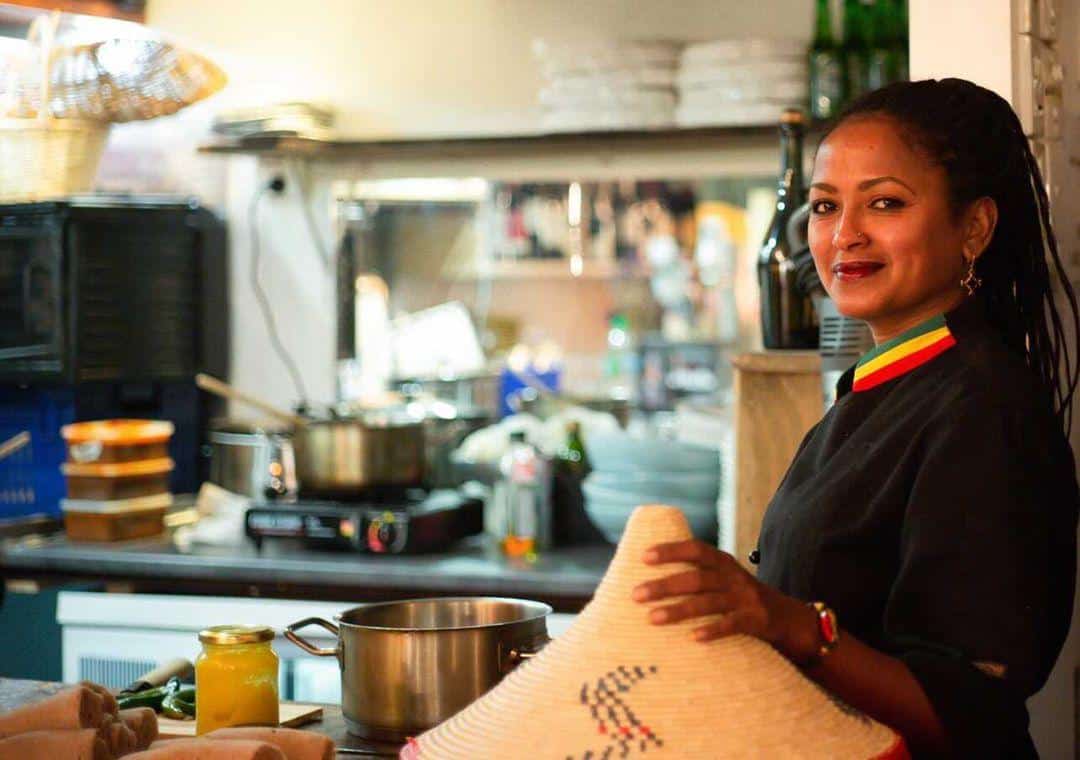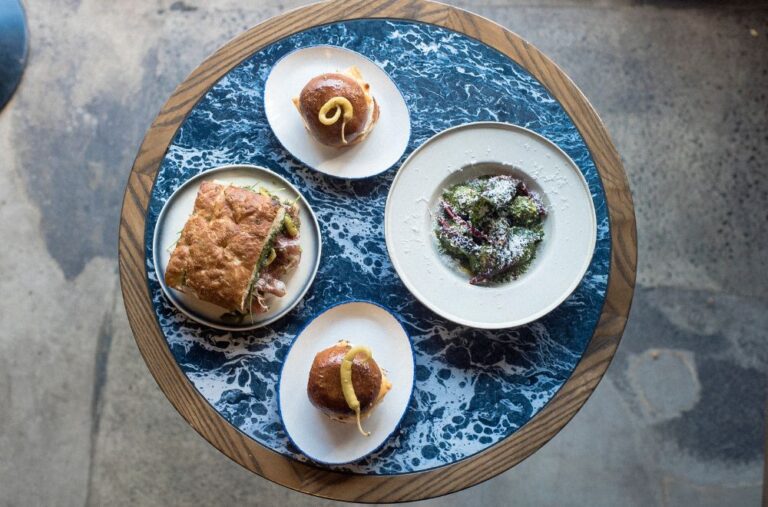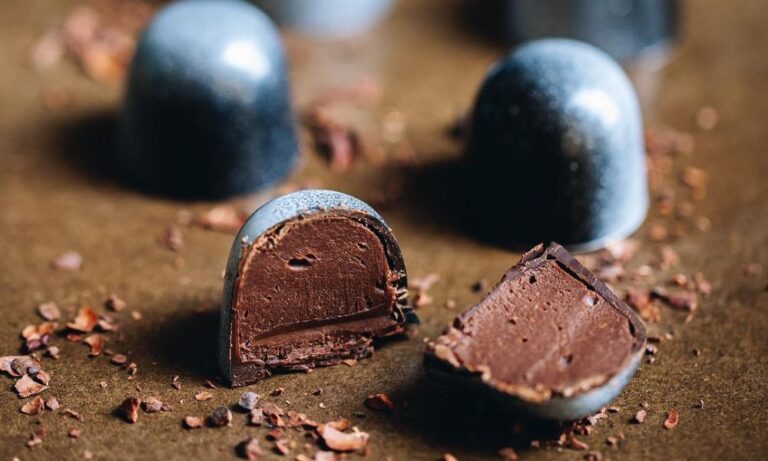It’s a good sign when you walk into a place and you’re hit with tantalising smells that instantly make your mouth water. “It smells so good,” I tell my fellow diners, all gathered here for an Ethiopian Easter feast, a pop-up by the talented Yeshi Desta, founder of My Mother’s Kitchen.
Over the next few hours, we’re introduced to dishes from Desta’s homeland. Melt-in-your-mouth kitfo, a type of beef tartare, with cooked greens and soft cheese. Comforting doro wot, a spiced chicken stew with hard boiled eggs and, my favourite, a sizzling plate of yebeg tips, lamb bones with berbere spices. Everything mopped up with the staple injera, a type of fermented flatbread.
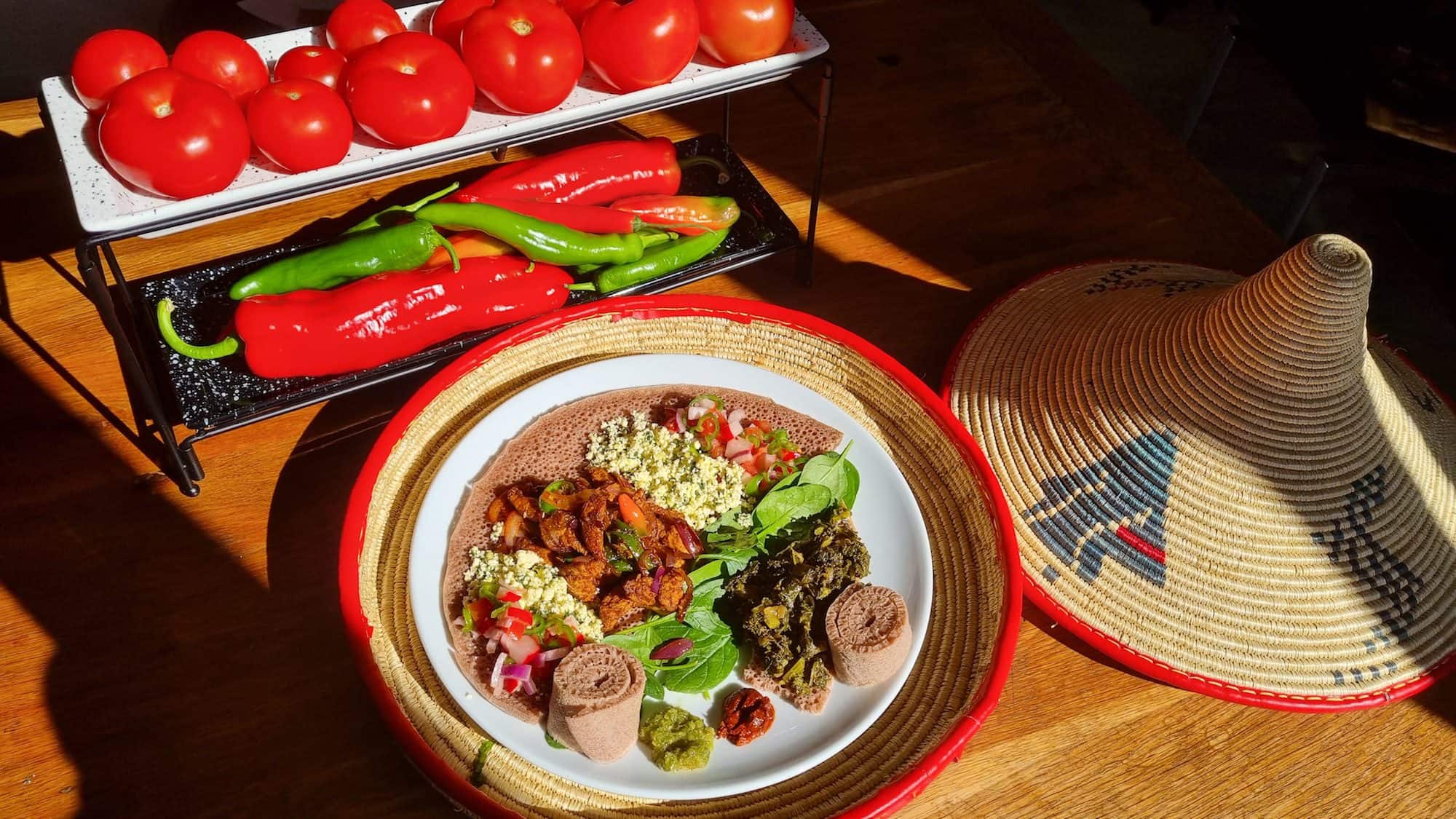
It was in March 2020, just before the country’s first lockdown, when Desta hosted her first pop-up with My Mother’s Kitchen. “I knew I couldn’t afford a place, so the idea was to do pop-ups. I knew I needed to start something new. I needed to do something for myself and just give it a go.”
The name reflects how much she missed her mother’s cooking, having moved to New Zealand 20 years ago after living in Ethiopia and Sudan. Since starting My Mother’s Kitchen, Desta’s pop-ups and events have made her a star on the local foodie scene.
Plant-based foods such as lentils and root vegetables are a major component of the Ethiopian Orthodox Christian diet, as they traditionally eat vegan every Wednesday and Friday, with longer fasts throughout the year.
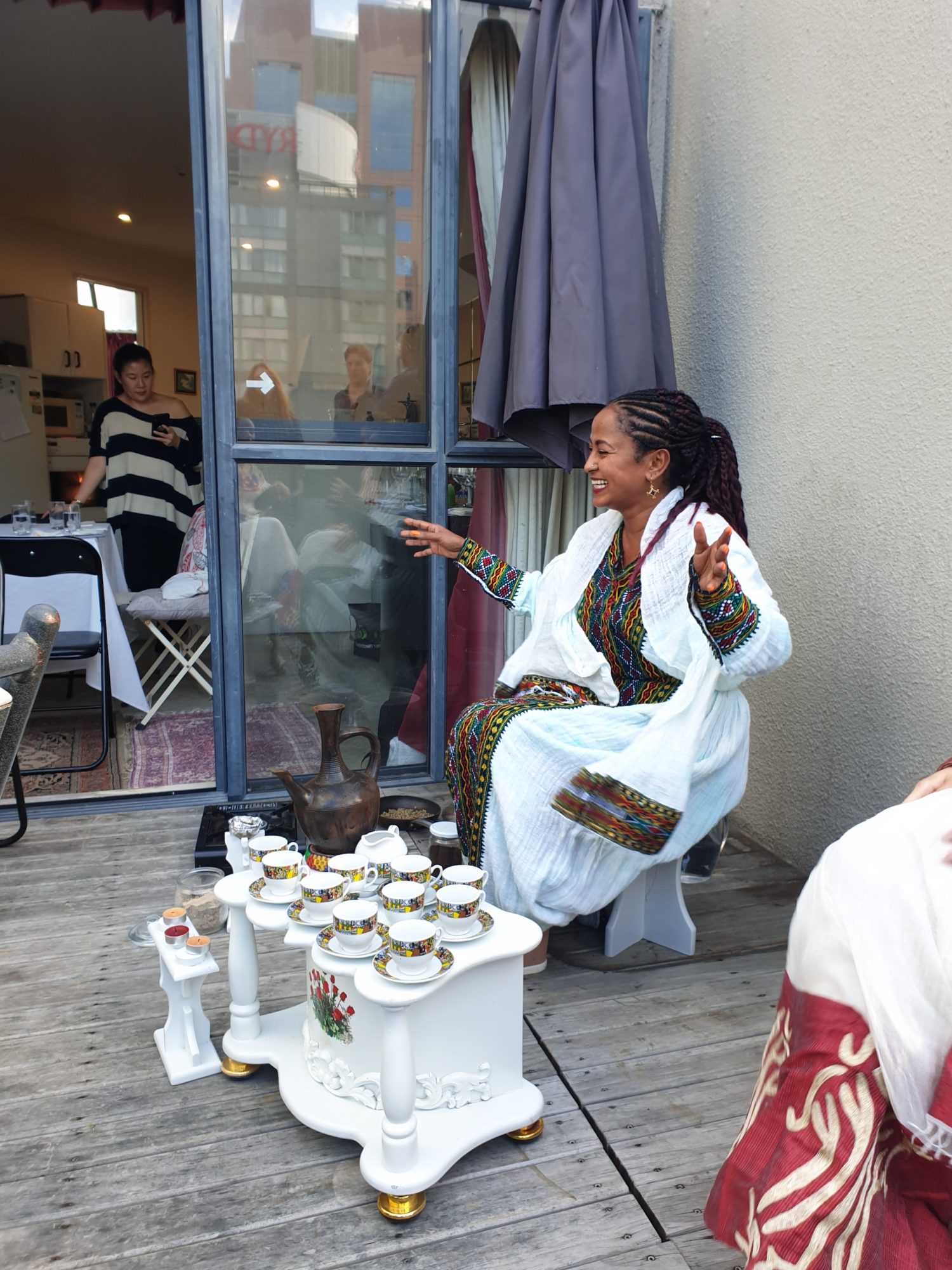
“In the back of my mind, I always knew Ethiopian food would be received well because of the flavours and healthiness of veganism. In the Western world, it’s become more of a trend, but for us, it’s centuries old.”
There are no shortcuts in Ethiopian cuisine, says Desta. It takes six to eight hours to cook the doro wot stew, and the injera takes three to five days to make. “There is a big understanding of the land, nature, everything takes time. That’s the thing about Ethiopian cooking. There are no shortcuts. I think that’s what makes it delicious because you spend time getting to know the different ingredients.”
There are also no shortcuts when it comes to flavour. Berbere is a chilli blend that is central to a lot of Ethiopian cooking. “I make my berbere from scratch, as well as my butter and bread. We love spicy food, so there are lots of different chilli blends and spices.”
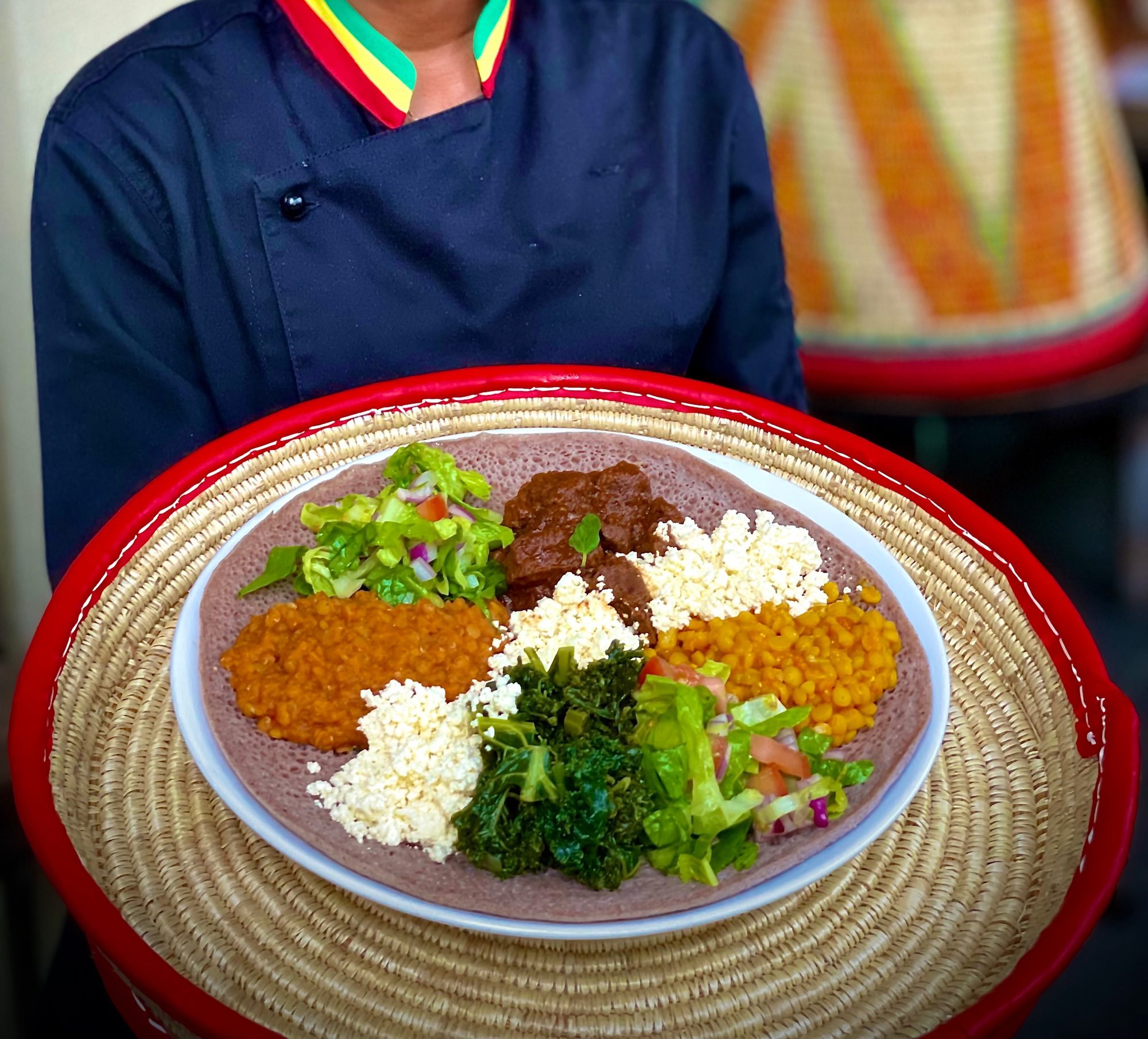
Her pop-ups are not only about eating, but about introducing people to the culture of her homeland. “I love to cook and to share my culture. Because we’re so far away, a lot of Kiwis don’t have a lot of knowledge about Africa, or a lot of people don’t care. Some people don’t have a positive idea of Ethiopia, to be honest. So I’m happy to share,” she says.
“A lot of people don’t know that Ethiopia is one of only two African countries not to be colonised, or that we have over 80 different languages. It’s nice to educate people about food, the way we eat, how we’re supposed to treat the land, about being patient with the ingredients. It brings me happiness to be able to share my culture.”


